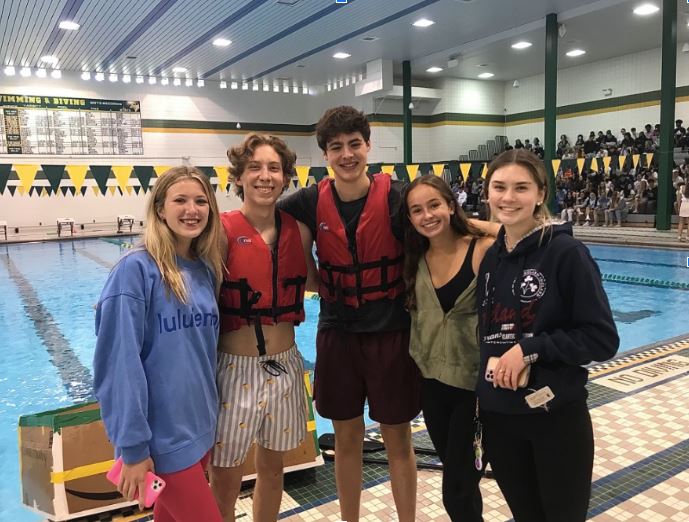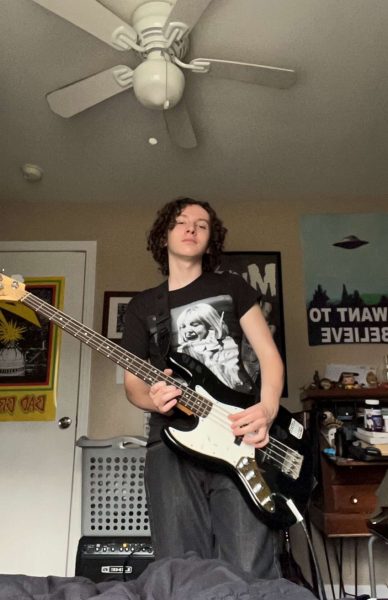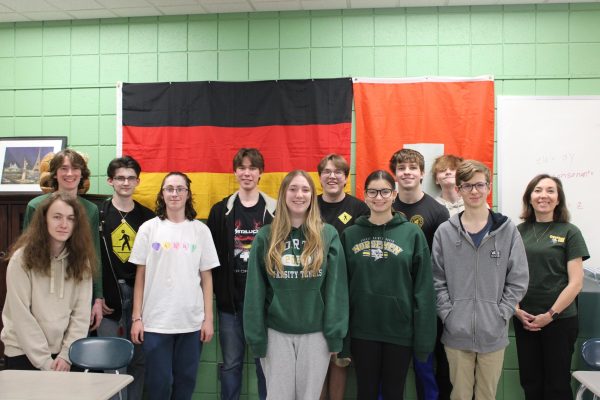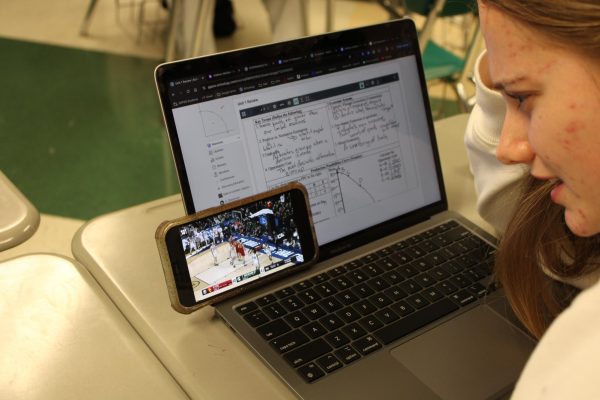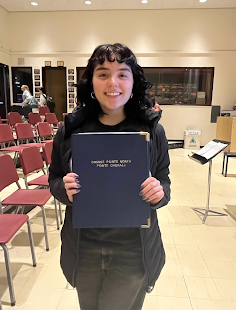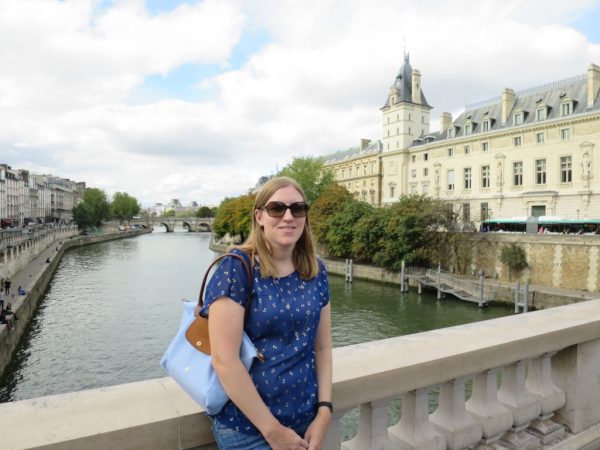Whatever floats your boat
Boat races make a return after two years
Photo credit: Ella McCarthy
ALL A-BOUT WINNING | Following the first heat junior Lauryn Rendzikowski celebrates with her teammates after securing the first win of the day. “We all didn’t know if it was actually going to float,” Rendzikowski said. “The fact that it floated and we got first place [is] a really great feeling.” Pictured from left to right: Lauryn Rendzikowski, Charlie Bomgaars, Brendan Burney, Olivia Dodenhoff, Eryn Cosgrove
June 8, 2022
A loud pool filled with students cheering on the boat they think will win, physics students frustrated that their boats didn’t float, all of these occurrences happened at the annual cardboard boat races which give physics students the opportunity to apply material learned in class to an exciting end of the year project. The project involves building a cardboard boat that can withstand holding two students traveling in the boat to and from the end of the pool. These boat races gave students the opportunity to get hands-on experience by creating a scale model of a boat all while making changes while building to ensure their boat performs properly in the race.
Physics teacher Don Pata believes that this project is important because it allows students to collaborate and be involved in their learning.
“Too often [students] spectate in their education and this gives them a chance to really commit to it and then see it through till the end,” Pata said.
The boat races draw in a lot of excitement for physics students as the end of the school year approaches. Due to COVID-19 they have not been able to do the boat races for the past two years, but now the races are making a comeback. For junior Lizzy Rheaume, this news was exciting because the project was something students could look forward rather than the traditional classroom learning environment.
“It created a fun experience especially for those who didn’t do it last year so I’m glad that it happened,” Rheaume said.
Students explored the scientific process throughout the project with steps that lead to their final product. Pata describes this project as hands-on experience with their own group’s efforts.
“It’s a design-thinking type [of] project, brainstorming, [then coming] up with a design, they draw that design, and then they build a scale model of that design,” Pata said.
Following the final results of the race students were able to reflect on their strategies, where they made mistakes, and where they were successful in the construction process. Upon having an unsuccessful boat in the race, senior Connor Tubbs assessed where they went wrong with his team.
“My boat failed because it couldn’t support the weight and we didn’t practice paddling,” Tubbs said. “We should have chose different people to go in the boat and reinforced the sides more.”
With losses, also came victories. While Tubbs’ boat wasn’t able to support weight from one pool edge to the other, Rheaume constructed a strongly layered boat which made her group successful.
“Our boat was successful because we added a lot of layers of cardboard and lots of duct tape,” Rheaume said. “We made it there and back so I would say our boat was very successful.”
Throughout the school year students are stuck inside of a classroom, but as the creation and final product of this project relies in the students’ hands, Pata sees this as a perfect way to emphasize the importance of the learning experience.
“Too often they’re in the classroom for too long [and] they lose sight of the whole reason we’re here,” Pata said. “I think hands-on experiences like this allow them to step outside the classroom and really realize some of the reasons those [same experiences] were [endorsed].”
Contributing: Ella McCarthy & Christina Shea


